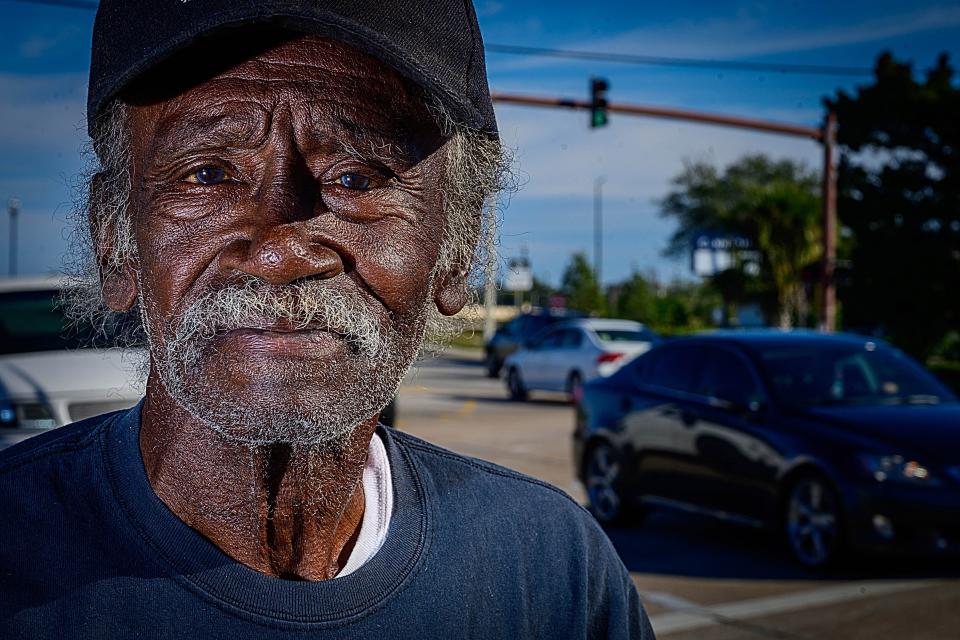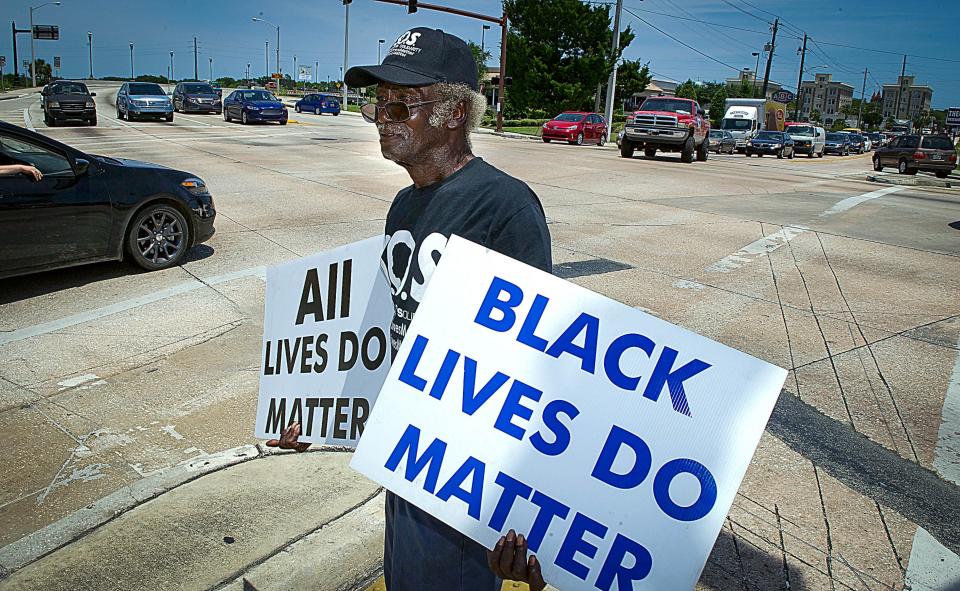'Trouble don't last always': Activist remembers King, St. Augustine's civil rights struggle
- Oops!Something went wrong.Please try again later.
Even before he heard Dr. Martin Luther King Jr. speak, James Jackson was inspired to help lead the fight for civil rights and racial equality.
By age 19, Jackson was already embroiled in the struggle right here in St. Augustine, participating in sit-ins during the summer of 1963 by taking "whites only" seats at lunch counters like the one at McCrory's Five and Dime on St. George Street.
Soon after, Dr. Robert Hayling, known as St. Augustine's "Father of Civil Rights," appointed him to lead the NAACP's youth council, which would later become part of the Southern Christian Leadership Council under King.
Others who led the fight: Johnnie Pasco, 'one of the mothers of the civil rights movement,' celebrates 100th birthday
A segregated city: Sisters of St. Joseph to restore former segregated school to new St. Augustine community center
St. Johns County tieshistory: Martin Luther King Jr.'s Anastasia Island connection and the history of Butler Beach
Now 76 and still living in St. Augustine, Jackson said in an interview with The Record last week that he was proud of the work he had done.
"I was just out of high school and wanting to make a difference somehow," Jackson said.

It also made him a target.
In September 1963, the Ku Klux Klan abducted Jackson along with Hayling and two other Black activists.
They were brutally beaten — "We were nearly lynched,” he recounted — and just narrowly escaped with their lives after being rescued by local police.
St. Augustine's role in the path to freedom
According to an article published by the Martin Luther King Jr. Research and Education Institute at Stanford University: "In the spring of 1964, as St. Augustine, Florida, prepared to celebrate its 400th anniversary, Martin Luther King Jr. and the Southern Christian Leadership Conference launched a massive campaign supporting the small local movement to end racial discrimination in the nation’s oldest city. King hoped that demonstrations there would lead to local desegregation and that media attention would garner national support for the Civil Rights Act of 1964, which was then stalled in a congressional filibuster."

King visited St. Augustine for the first time on May 18, 1964. Speaking at a Baptist church on May 27, he told the congregation that segregation would soon be over in St. Augustine “because trouble don’t last always.”
In his dealings with King, Jackson was always struck by how "he never talked down to anyone; he would just converse with them at the same level."
More coverage: St. Augustine church to host Martin Luther King youth program
St. Augustine's civil rights movement: A look at Dr. Martin Luther King Jr.'s legacy
Pivotal incident at the Monson Motor Lodge
On June 11, 1964, with King in town again, Hayling and other local civil rights leaders hatched a plan to have Black young people try to mix into the Monson Motor Lodge's outdoor pool. Located at 32 Avenida Menendez, where the Hilton St. Augustine Historic Bayfront now stands, the pool was restricted to whites only.
Jackson played a key role in the motel protest: He provided transportation for the kids who waded into the pool that day.
James Brock, who owned the motel, reacted by pouring acid into the pool, forcing the swimmers out.
Jackson was later arrested, along with King, for "contributing to the delinquency of minors." The incident garnered national media attention, putting pressure on then-president Lyndon Johnson.
"Be it not for St. Augustine, Johnson would not have signed the Civil Rights Act," Jackson said.
The legislation was enacted weeks later, on July 1, 1964.
King's legacy remains
In his time in St. Augustine, King spoke at many churches and helped organize non-violent demonstrations in the city — but some demonstrators were still injured or arrested.
When asked how Blacks in St. Augustine look back at that chapter in the city's history, Gayle Phillips, executive director of the Lincolnville Museum and Cultural Center, said she would venture to say they do with mixed feelings.
The Lincolnville Museum tells the stories of many of the people who were engaged in the movement through its exhibits and oral histories and archives.
"People are proud to have been a part of the movement and to know that they did have some effect on the outcome for the move toward desegregation," Phillips said.
On the other hand, Phillips added, "Many people think that when Dr. King left, little was done to improve race relations. Many who worked in the movement live outside of St. Augustine, even Dr. Robert Hayling moved away. There was a void of Black businesses following the signing of the Civil Rights Act of 1964 that still exists to this day."
OPINION: Pope’s View: Martin Luther King Jr. holiday calls us to action
Related: St. Johns County couple buys house with ties to Dr. Martin Luther King Jr., will preserve it
Other actors in the fight
Other local residents witnessed the unrest in St. Augustine or personally interacted with King.
Gwendolyn Duncan recalls watching a Ku Klux Klan parade through Lincolnville, and then her experience of integrating into a white school.
Cora Tyson frequently hosted and fed King and other civil rights leaders of the time. At age 98, Tyson still lives at the property and can tell you the recipe for the iced tea that Dr. King liked to drink.
Janie Price ran another "safe house" and hosted King as an overnight guest the day before he was arrested at the Monson Motor Lodge.
Barbara Vickers worked with Hayling, who was then her neighbor, to organize civil rights protests and participate in kneel-ins in segregated churches.
There are others, too, but as Phillips said, "There are not too many of them left."
This article originally appeared on St. Augustine Record: St. Augustine activist remembers working with Martin Luther King Jr.

